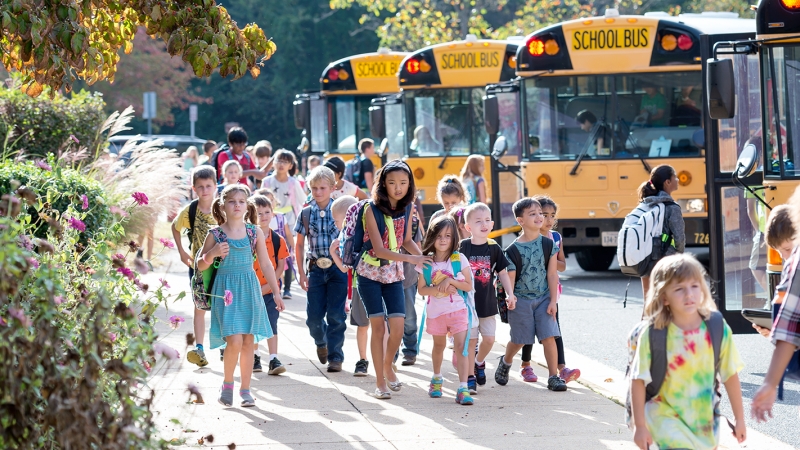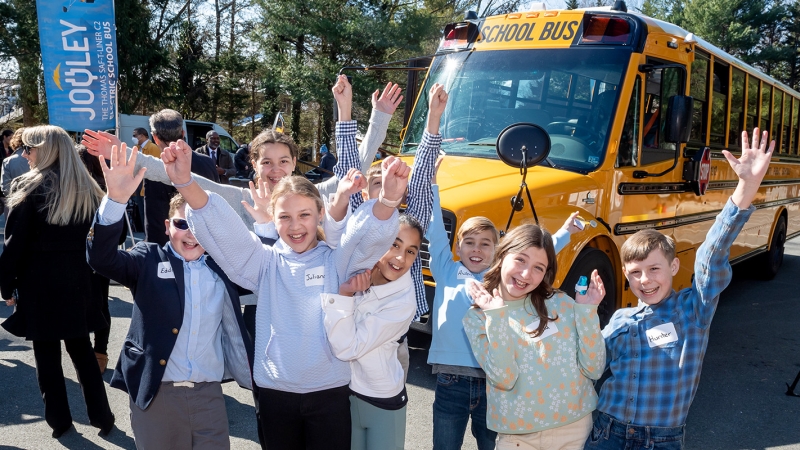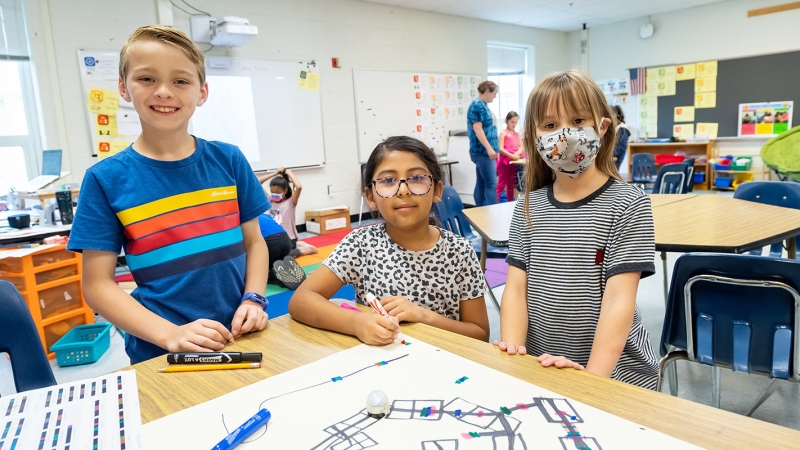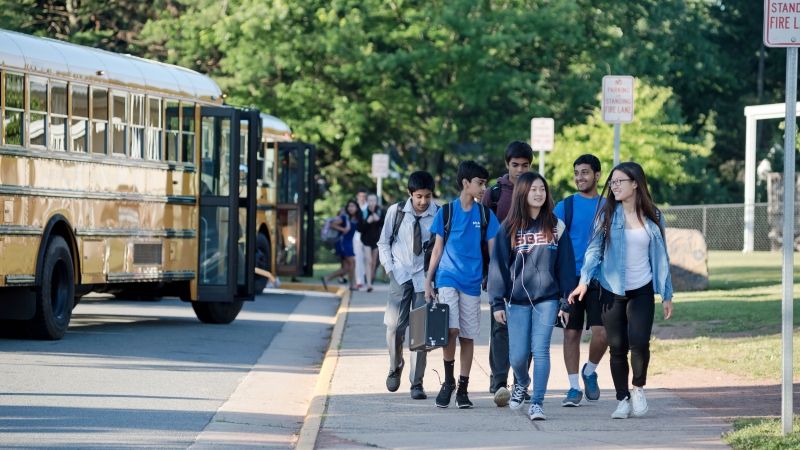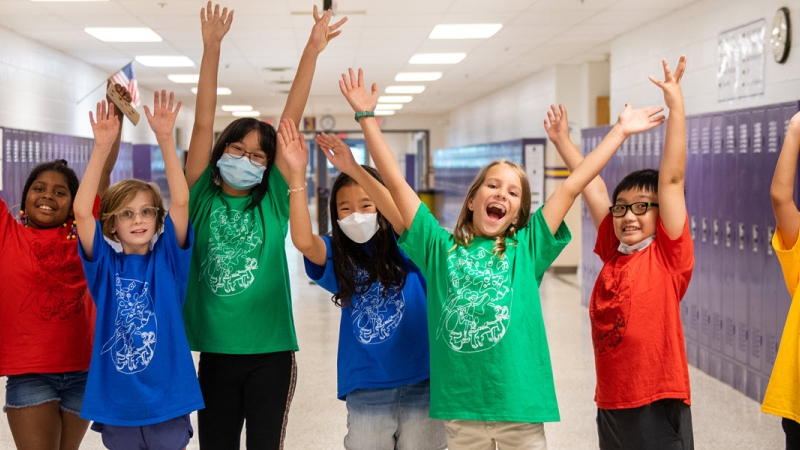
Easing the Back-to-School Transition
Healthy Minds is back for our 5th year. Over the course of this school year, we plan to create blog posts with the latest information related to youth mental health and wellness. Articles will include tips and strategies for increasing wellness and resiliency, as well as fostering success at home, at school, and in the community. We will further continue to alert you to special events in the area and other critical news. SUBSCRIBE to Healthy Minds to receive a monthly digest of our most recent articles throughout the school year.
FCPS is Returning Strong to five days a week of in-person learning. It is hard to believe that the last time this was in place was in March of 2020. The transition back to school can be difficult for both students and parents, but perhaps even more so this school year. It will be a change for all of us from what we experienced last school year.
Spending some time now to prepare for the year ahead can help produce positive outcomes. Getting the school year off to a successful start can have a big impact on your child's attitude, confidence, and performance both socially and academically. Here are some suggestions from the National Association of School Psychologists (NASP) to help ease this up-coming transition back to school and promote a successful school experience.
- Stay up-to-date on FCPS's return to school plans for 2021-22. Here is where you can find information on FCPS's safety measures, as well as answers to frequently asked questions.
- Review the material sent by the school as soon as it arrives. These packets include important information about your children’s teachers, classroom, school supply requirements, sign-ups for after-school activities, school calendar dates, bus transportation, health and emergency forms, and volunteer opportunities.
- Consider making copies of your child's health and emergency information. Health forms are typically good for at least a year and may be used again for camps, extracurricular activities, and perhaps the following school year.
- Establish a family calendar. Make a note of important dates, especially back-to-school nights and parent-teacher conferences. This is especially important if you have children in more than one school and need to juggle obligations.
- Buy school supplies early. School supplies lists are available on school websites. Try to get the supplies and fill the backpacks at least a week before school starts. Older children can help do this but make sure they use a checklist that you can review. Some teachers require specific supplies, so save receipts for items that you may need to return later.
- August 6 to 8 is a 3-day Virginia sales tax holiday. You can purchase school supplies ($20 or less per item), as well as clothing and footwear ($100 or less per item) without paying any sales tax.
- Reestablish bedtime and mealtime routines at least one to two weeks prior to the start of school. Talk with your child about the benefits of establishing routines in terms of not becoming overly tired or overwhelmed by the increased demands of school work and activities.
- Turn off electronic devices. Encourage children to make use of games, puzzles, coloring, or reading as early morning activities. This will help ease them back into the learning process and school routine. If possible, maintain this practice throughout the school year. Your children will arrive at school better prepared to learn each morning if they have engaged in less passive activities.
- Visit your school with your children. Meeting school staff and locating classrooms, a locker, the lunchroom, and so on will help ease anxieties while also allowing your children to ask questions about the new environment.
- Visit your school's website to check the school calendar for dates of a possible Open House, Orientation, or Jump Start program. Some activities may require you to sign up beforehand.
- Designate and clear a place to do homework. Older children should have the option of studying in their room or a quiet area of the house. Younger children usually need an area set aside in the family room or kitchen to facilitate adult monitoring, supervision, and encouragement.
- Check out last year's blog on Handling the Homework Hassle for more helpful tips.
- Find your launch pad. Select a spot to keep backpacks and lunch boxes. Designate a spot for your children to place their school belongings as well as a place to put important notices and information sent home for you to see. Explain to children that emptying their backpack each evening and placing it back in the designated launch pad area is part of their responsibility.
- Define your after-school plans and procedures for your children. Confirm participation in any after school programs. Create a list of important contact information that may be needed by your children if you are not there. This may include parent or guardian phone numbers, and even any neighbors who may be home daily.
- Registration is happening now for School Age Child Care (SACC). This is a Fairfax County Office for Children program for children in kindergarten through sixth grade and is available at most elementary schools. The program is available to families when all adults in the home are working, attending school, or are disabled. The cost is based on the gross household income.
- Plan out that first week of school ahead of time such as meals (consider freezing a few easy dinners), activities, etc. Look to clear your own schedule to the extent possible. This will allow you to maximize your time to be available to talk with your children about all the new things happening in their lives with their return to school.
Be sure to visit Healthy Minds next week for our blog on managing your child's anxiety with the return back to school.
If you or someone you know may be experiencing a mental health challenge or crisis, text HOME to 741741 to reach a crisis counselor, call 1-800-273-8255 to reach the National Suicide Prevention Lifeline, or call 911.
The Healthy Minds Blog shares information related to youth mental health and wellness for an audience of parent, educators and community-based providers. Articles include tips and strategies for increasing wellness and resiliency, as well as fostering success at home, at school and in the community.
The Healthy Minds Blog is a collaborative project between Fairfax County Public Schools and the Prevention Unit of the Fairfax County Department of Neighborhood and Community Services. It is part of the Healthy Minds Fairfax (see below) initiative, designed to support emotional wellness in youth and families.
SUBSCRIBE to Healthy Minds and receive a quarterly digest of our most recent articles.
